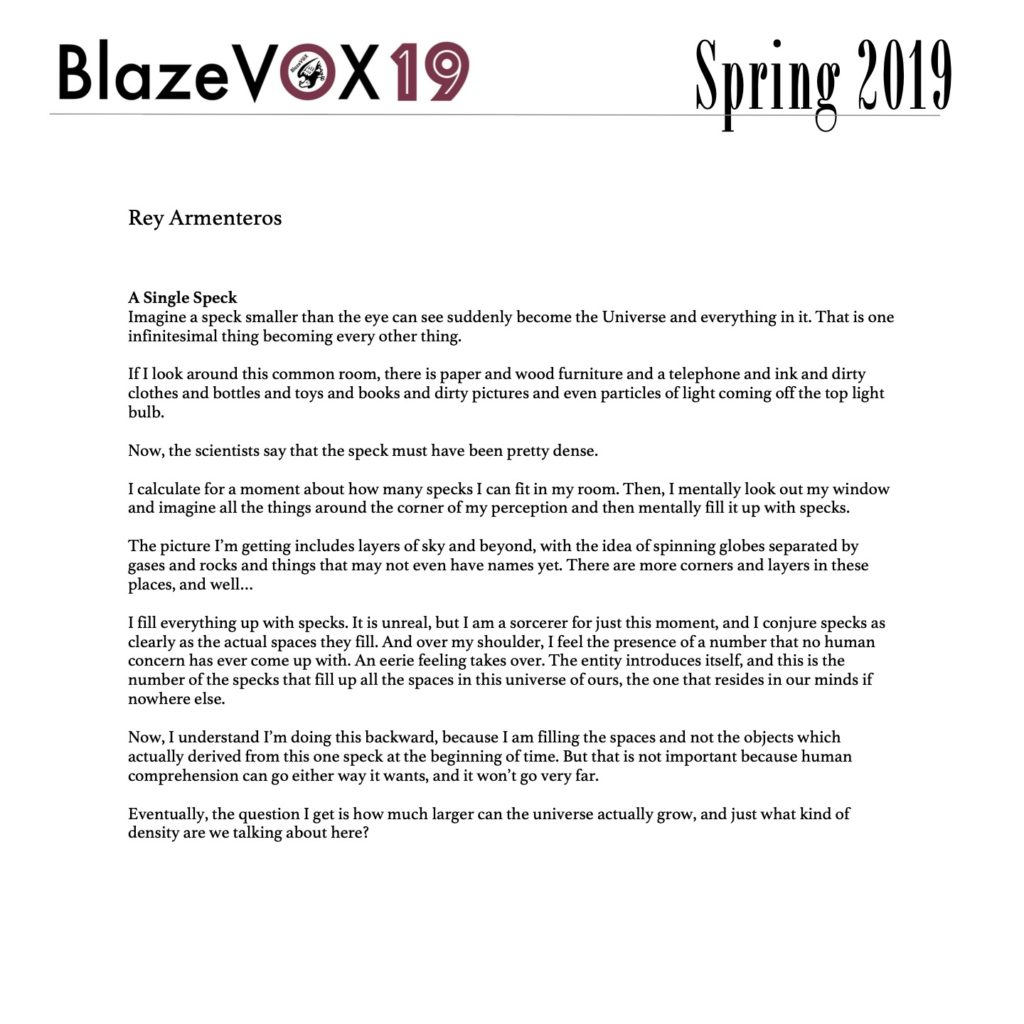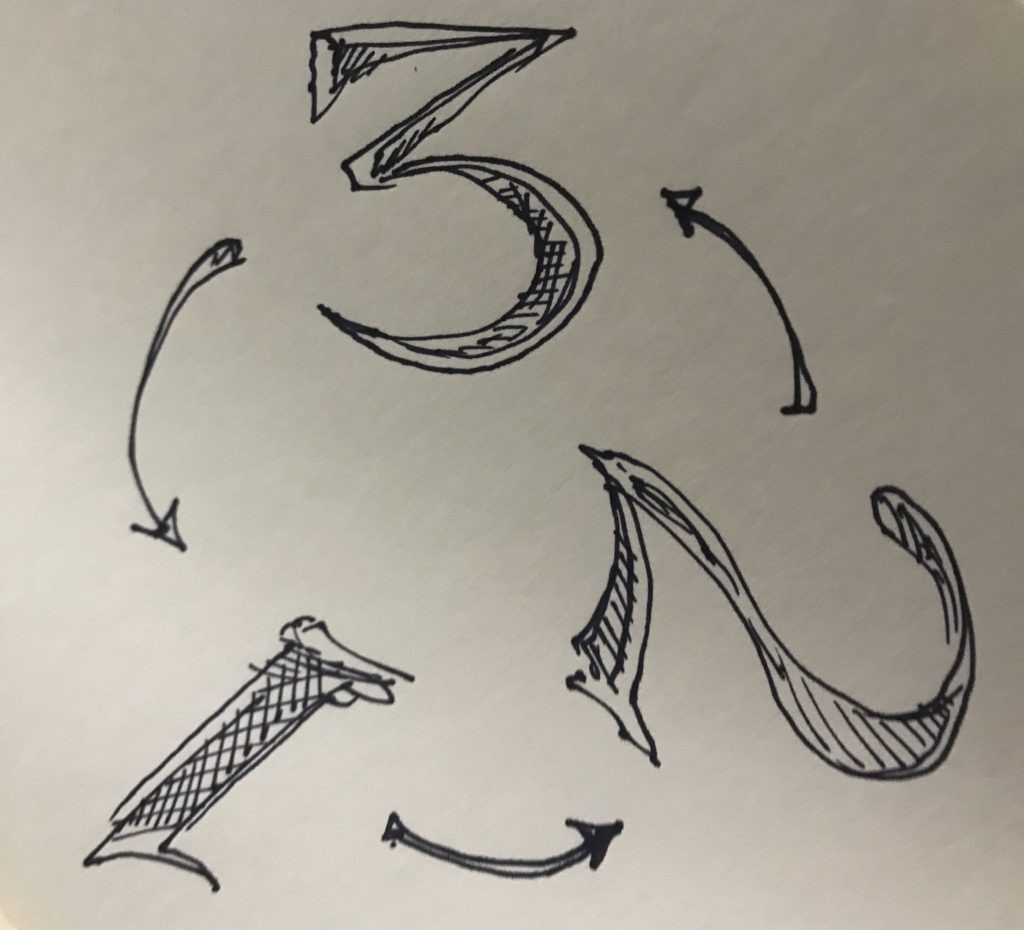12 September 2021
by Rey Armenteros
Different ways of doing things, and each way gives a certain presentation. That was why I craved the original books. For Auden, it was the four books I had read from a college library. Those were the ones I wanted. But when I looked them up, the prices were too high for the battered conditions the old books had. They were four earlier books, and I wanted to relive them. Things like The Shield of Achilles and Nones. And The Double Man. I forgot the fourth. I looked around a little more. I settled on one of two other options. I could either get the Collected Poems of Auden or the Selected Poems of Auden. To the untrained ear, they sound the same. And just a couple of years before, both terms would have meant the same thing to me. I now knew that “collected” meant every available poem by Auden. That collection was being offered in several volumes. So my four books would be there, yes, but so would every book by Auden I was not yet ready for. I looked into the other option, which was just one volume of what one editor deemed Auden’s best work. “Selected” implied the best (even though it was reluctant to say it) — according to whomever’s standard. I knew this would fall way short of the mark, but I settled for it because it did represent parts of these four books, along with some other stuff.
Neither option works. I hope one day poetry publishers understand that. The individual volumes of poetry are discrete works that need to be made into their discrete volumes. Books fall out of print. Some books come back into print. But for poetry, this rarely happens. As soon as a poet is dead or along in years, they put together these massive volumes that collect everything.
For Strand, it was just one book, and I thought at the time it was the best option. Originally, I was interested in one poetry book of his that was all in prose. But his entire career came along with this new edition. When I started reading it, it occurred to me — the notion that the life’s work of a poet was all held in this one not very large book. Like a brick that gets one shot to get thrown through a window. That would make waves. Its mark.
I went through Strand’s whole career like that, in that one brick, and it made me wonder if I were doing it wrong. You needed to breathe between the books. It was actually the kind of book you left close-by, handy, so that you can read a little everyday. Next time, that’s how I’ll do it.
I gather the economics is not there to publish one poet’s entire career of books as originally published. It saves to put it all in one book. And that way, the lovers of this work would have all the work available, and what is more important, it would still be in print.
But a collection lumps everything together. It does not usually honor the original typesetting of the individual books, and this could force textual inconveniences. The worst part about a collection is that the books of poetry that once existed on its own without being in close proximity with other works are no longer separate units to be encountered in that way. They share a spine and a reading momentum. They have stopped roaming the world on adventures and are now a part of a home where the family dynamics do not always equate harmony.
And the pages have no care for the distribution of the poems. Everything is done for the sake of space because so much is squeezed into one book. If the original books started every poem at the top of the page, a collection will not follow that because it follows a different set of ethical grounds.
I swore I’d never buy another collection of poetry works again. For Ashbery, I bought the one poetry book I had read about. I couldn’t find a decent copy of Three Poems, but even a battered copy would be better than a collection. I bought the battered copy. Read it and read it. My fingers had to handle it more gingerly than I normally hold books, because the pages were about to start slipping out of the binding. I needed to read the book more, but I didn’t enjoy the physical conditions. I decided to get the first volume of a two-volume set of his collected works. I was reluctant. But there was no other option. Taking a look at it when I obtained it, paging through it, I felt more disappointed than with the Strand collected works. It was generic-looking. The pages were almost onion skin. It was a thousand pages. Reading it, I found, was like reading the Bible. But I’ve been reading it. And reading it is the best part. I kept reading it, and the physical limitations of the book did not add to the experience, but they slipped into the background. The generic-looking tome was what I expected everyday at the same time of the day when I pulled it for more lines of his work.
I am not a fan of the format, but this is all I have. I’m thankful it is here. Reading it and reading it still. The collected format is running a through line across every work of his, and this is inevitable in any reading of such a book. The thin paper and sober demeanor of its covers are now subsumed into my experience. After buying this first volume, I swore I would not buy another collection. Well, when I’m ready, I’m going to need to buy the second volume. And that will be the last one.
Leave a comment |
Categories: Books, Essay, Poetry, ReyA'
|
Tags: books, essay, literature, poetry



